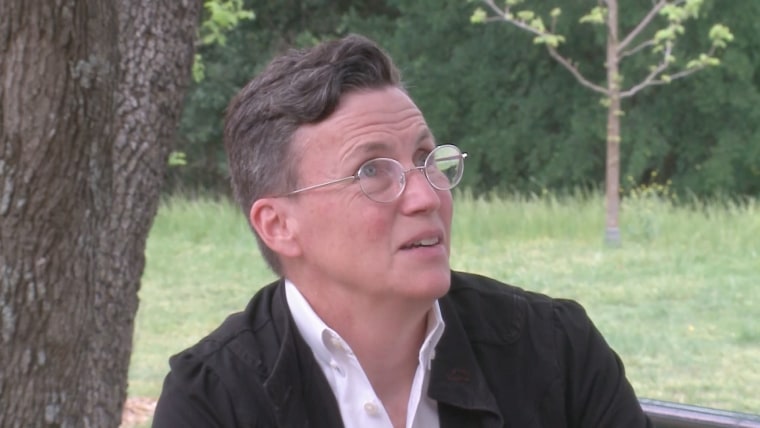Texas child welfare workers quit over governor’s transgender directive
An increasing number of child welfare workers in Texas are quitting because of a directive from Gov. Greg Abbott that requires them to investigate child abuse claims against parents suspected of providing gender-affirming care to their transgender children.
Morgan Davis, a transgender man, put in his two-week notice with the Child Protective Services office in Travis County this month because he “couldn’t morally continue” his job after investigating the family of a trans teen, he told KXAN-TV, an NBC affiliate in Austin.
Davis is reportedly not alone. More than a half dozen Child Protective Services employees in the state told The Texas Tribunethis month that they have either resigned or were looking for new jobs as a result of Abbott’s directive.

‘I couldn’t morally continue’: Texas Child Protective Services worker resigns in protest of state’s transgender directive
Last year, the Texas Legislature failed to pass a bill that would’ve changed the state’s definition of child abuse to include providing gender-affirming medical care, such as puberty blockers and hormones, to minors.
As a result, Attorney General Ken Paxton issued a legal opinion in February that said providing gender-affirming medical care to minors, including puberty blockers and hormones, constitutes child abuse under state law. Abbott issued his directive to the Texas Department of Family and Protective Services, the state agency that investigates child abuse reports, shortly after.
One of the first cases under Abbott’s order landed on Davis’ desk. He said he could have recused himself, but he wanted the family being investigated to see a friendly face.
“In my case, it was an exemplary family. Exemplary. The kind of family you wish and pray that every case we had would have,” Davis said.
He didn’t find any abuse or neglect, but said the agency didn’t drop the case.
“All we do is protect children. That’s all we’re supposed to do,” he told KXAN. “And then we’re genuinely in a path to hurt and, or terrify families. To tell them anything else other than to walk into that home and applaud them is unthinkable.”
Davis told The Texas Tribune that he decided to resign after speaking with the lawyer of the family he had investigated.
OUT NEWSProfessor who wouldn’t use trans student’s pronouns wins $400K settlement
“She said, ‘I know your intentions are good. But by walking in that door, as a representative for the state, you are saying in a sense that you condone this, that you agree with it,’” Davis told the paper.
The lawyer’s comment “hit me like a thunderbolt,” he said. “It’s true. By me being there, for even a split second, a child could think they’ve done something wrong.”
A judge blocked Abbott’s directive in March, temporarily pausing investigations.
The Department of Family and Protective Services declined to comment on the resignations. In regards to the investigations, Marissa Gonzales, the agency’s director of media relations, said “DFPS has and continues to comply with Texas law.”
Davis told KXAN that turnover at the agency is already high, adding that caseworkers, who usually manage about 15 cases at one time, have recently been overseeing about 35 to 45.
“You have caseworkers calling in sick just because they need a break,” he explained.
















